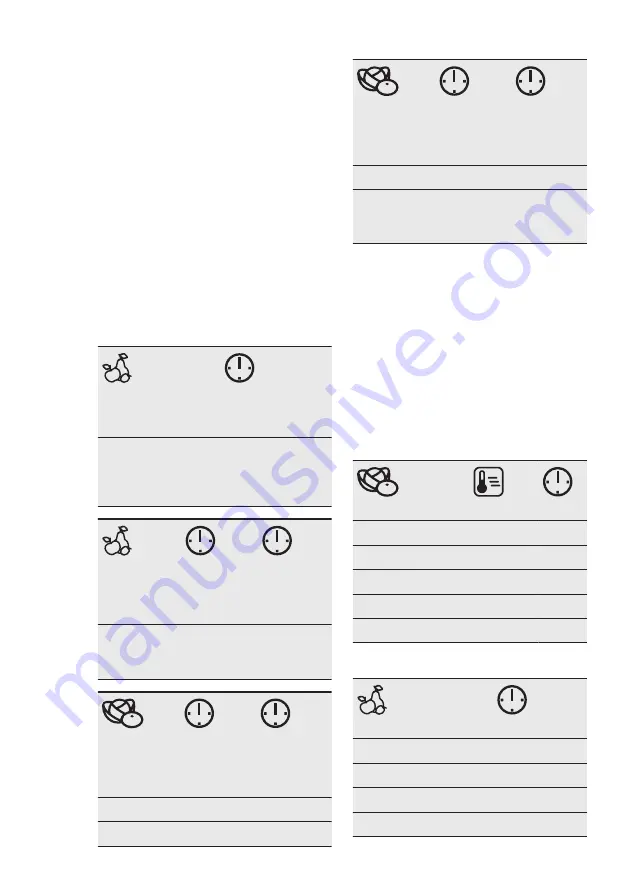
Do not use jars with twist-off and bayonet
type lids or metal tins.
Use the first shelf position.
Put no more than six one-litre preserve
jars on the baking tray.
Fill the jars equally and close with a
clamp.
The jars cannot touch each other.
Put approximately 1/2 litre of water into
the baking tray to give sufficient moisture
in the oven.
When the liquid in the jars starts to
simmer (after approximately 35 - 60
minutes with one-litre jars), stop the oven
or decrease the temperature to 100 °C
(see the table).
Set the temperature to 160 - 170 °C.
SOFT FRUIT
(min)
Cooking time un‐
til simmering
Strawberries / Blue‐
berries / Raspber‐
ries / Ripe gooseber‐
ries
35 - 45
STONE
FRUIT
(min)
Cooking
time until
simmering
(min)
Continue
to cook at
100 °C
Peaches /
Quinces /
Plums
35 - 45
10 - 15
VEGETA‐
BLES
(min)
Cooking
time until
simmering
(min)
Continue to
cook at
100 °C
Carrots
50 - 60
5 - 10
Cucumbers
50 - 60
-
VEGETA‐
BLES
(min)
Cooking
time until
simmering
(min)
Continue to
cook at
100 °C
Mixed pickles 50 - 60
5 - 10
Kohlrabi /
Peas / Aspar‐
agus
50 - 60
15 - 20
10.16 Dehydrating - True Fan
Cooking
Cover trays with grease proof paper or
baking parchment.
For a better result, stop the oven halfway
through the drying time, open the door
and let it cool down for one night to
complete the drying.
For 1 tray use the third shelf position.
For 2 trays use the first and fourth shelf
position.
VEGETA‐
BLES
(°C)
(h)
Beans
60 - 70
6 - 8
Peppers
60 - 70
5 - 6
Vegetables for soup 60 - 70
5 - 6
Mushrooms
50 - 60
6 - 8
Herbs
40 - 50
2 - 3
Set the temperature to 60 - 70 °C.
FRUIT
(h)
Plums
8 - 10
Apricots
8 - 10
Apple slices
6 - 8
Pears
6 - 9
ENGLISH
31














































